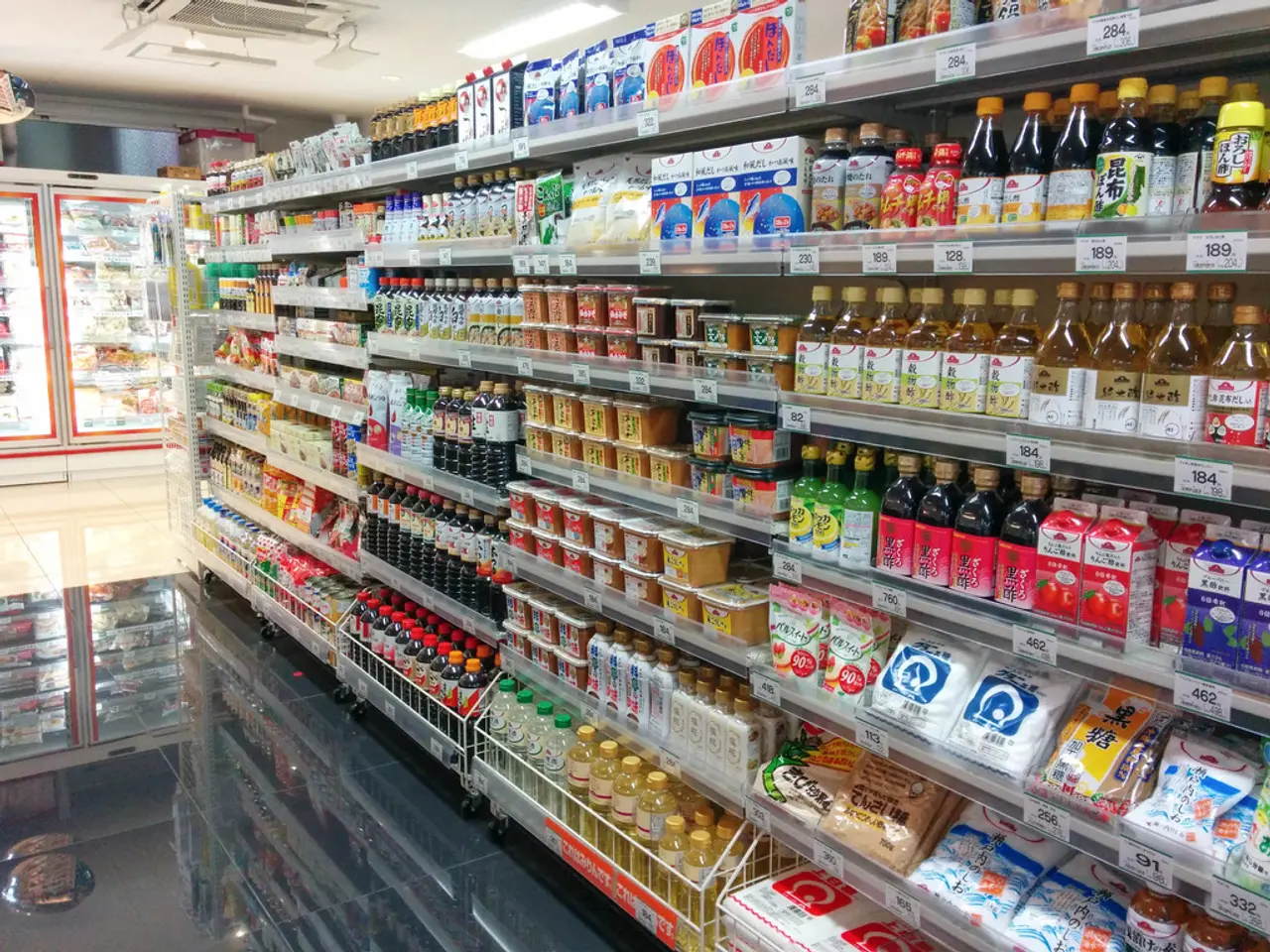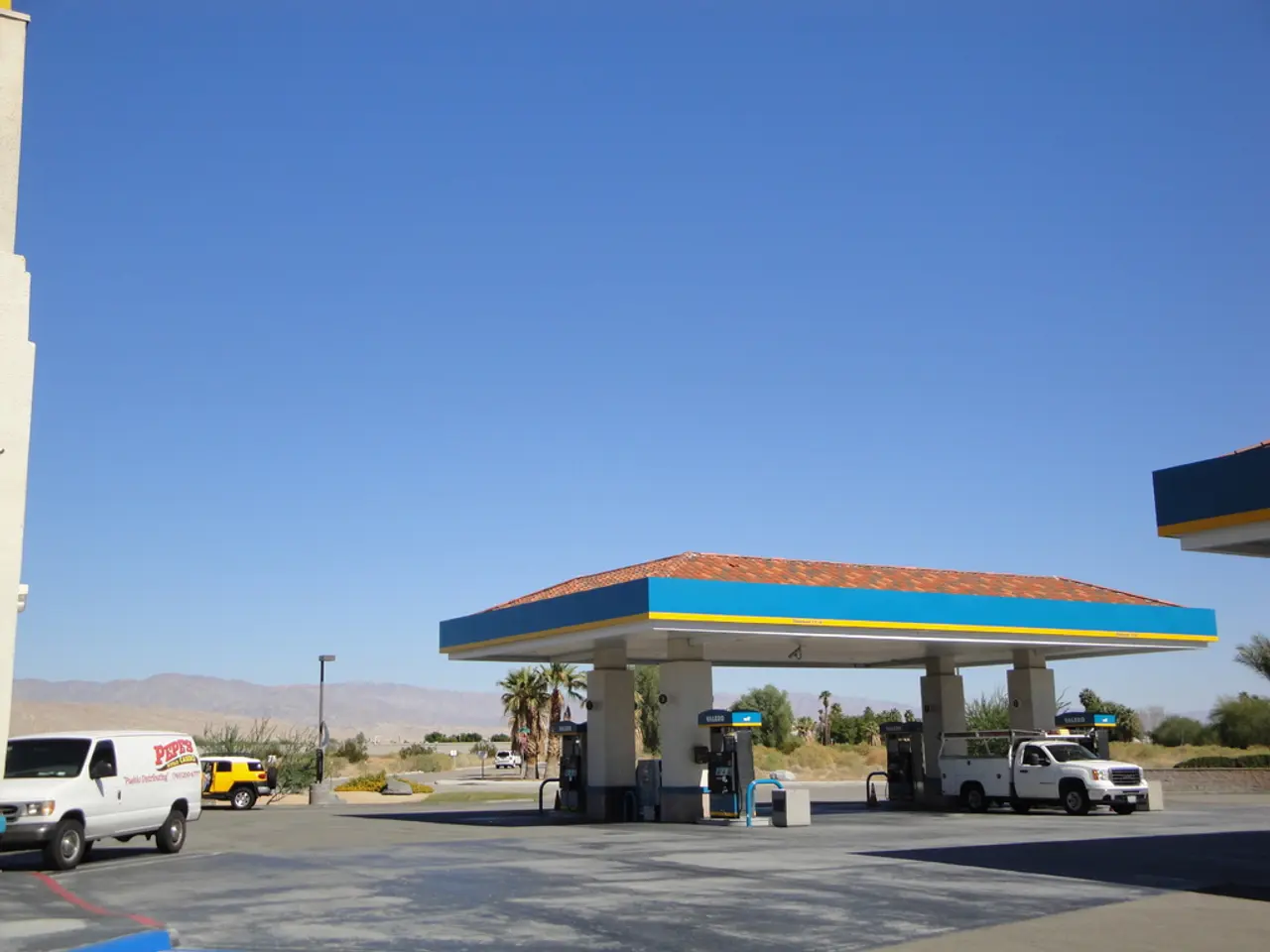Volkswagen suffers a 1.3 billion euro setback due to Trump's tariffs.
Volkswagen, the German automotive giant, has experienced a significant drop in net profit during the first half of 2025. The operating profit has decreased by 29% to 33% compared to the previous year, amounting to approximately €6.7 billion. This decline is primarily attributed to the negative impact of U.S. tariffs, restructuring costs, and margin pressures related to the company's electric vehicle (EV) expansion.
Despite maintaining roughly stable sales revenue at around €158.4 billion, the tariffs imposed by the U.S. have caused a significant squeeze on profits. The cost burdens from restructuring and the margin challenges of ramping up EV production have further pressured profitability.
As a result, Volkswagen has revised its full-year 2025 financial outlook. The company now forecasts an operating profit between €1 and €3 billion, a significant decrease from the previous expectation of €2 to €5 billion. Vehicle sales are expected to have slight growth, and financial services sales revenue has increased, somewhat offsetting the negative currency effects.
The company is navigating a challenging environment marked by tariffs and high EV investment costs. Slight growth in vehicle sales suggests some market resilience, but profit margins remain under pressure. The company’s adjustments to its forecast reflect cautious expectations for profitability recovery in 2025.
Trump's aggressive trade policy includes a 25% levy on imported cars, which has hit Volkswagen hard. The future outlook is tempered by the ongoing tariff impacts and margin challenges. The U.S. and European Union diplomats are currently negotiating ahead of the August 1 deadline set by Trump.
Volkswagen's shares initially slipped but later rose more than 3% in morning trading, attributed in part to CEO Oliver Blume's positive outlook for Audi and Porsche. The company has also reached an agreement with unions to cut 35,000 jobs in Germany by 2030 as part of plans to save 15 billion euros a year.
However, finance chief Arno Antlitz warns that tariffs are likely to remain a permanent burden and that cost-cutting efforts will need to be increased to offset their effect. The company has lowered its revenue and profit outlook for the rest of the year due to political uncertainty and increased barriers to trade.
In the North American market, sales volume for Volkswagen decreased by 16% in the first half, primarily due to tariffs. Stellantis, another automotive company, also experienced a 25% decrease in sales volume in the second quarter of the year. Higher sales of lower-margin electric vehicles, restructuring costs, and tariffs contributed to the decrease in profit.
Despite the current challenges, Blume believes there is positive momentum for Audi and Porsche from 2026 onwards. CEO Blume made a clear plea to negotiators for a balanced outcome on the tariff issue, emphasising the importance of finding a solution that benefits both parties.
In conclusion, Volkswagen is facing a current phase of profit decline heavily influenced by U.S. tariffs on vehicles and related cost pressures, compounded by the financial burden of its EV transformation. The future outlook is cautiously optimistic on sales growth but tempered by margin challenges and ongoing tariff impacts.
- The ongoing tariffs imposed by the U.S., particularly on imported cars, have had a lasting impact on Volkswagen's profitability, perpetuating as a permanent burden.
- The financial services sector of Volkswagen has seen an increase in sales revenue, offering a slight offset to the negative currency effects and the pressure on profit margins.
- Volkswagen's North American market sales volume has declined by 16% in the first half of the year, a result of tariffs and higher sales of lower-margin electric vehicles, alongside restructuring costs.




